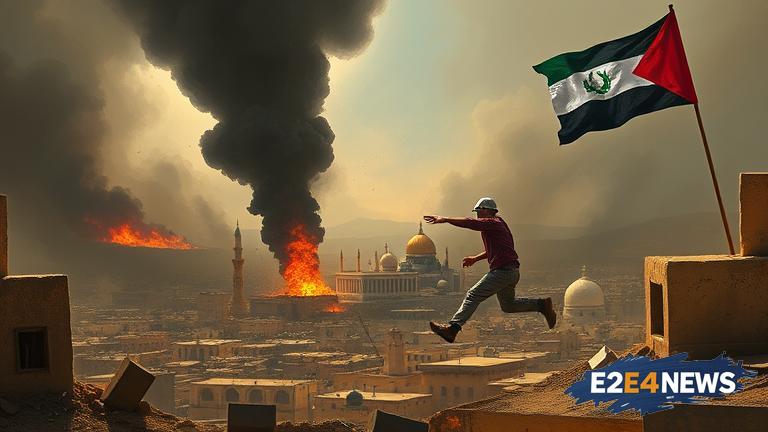The ongoing conflict between Israel and Palestine has reached a critical juncture, with reports of massacres and violence on day 659 of the conflict. Despite efforts to implement humanitarian truces, the situation on the ground remains dire. The Israeli military has been accused of carrying out raids and attacks on Palestinian civilians, resulting in significant loss of life and displacement. The international community has been calling for an end to the violence and a negotiated settlement to the conflict. However, a lasting resolution remains elusive, with both sides dug in and refusing to back down. The humanitarian situation in Gaza and other affected areas is particularly dire, with reports of food and water shortages, as well as a lack of access to medical care. The United Nations and other humanitarian organizations have been working to provide aid and assistance to those affected, but their efforts are often hindered by the ongoing violence. The conflict has also had a significant impact on the regional and global economy, with trade and investment disrupted by the ongoing instability. The Israeli government has been accused of using excessive force and violating international humanitarian law, while the Palestinian leadership has been criticized for its failure to condemn violence and terrorism. The conflict has also been marked by a significant increase in anti-Semitic and anti-Muslim sentiment, with both sides accusing each other of perpetuating hatred and intolerance. Despite the challenges, there are still many who hold out hope for a peaceful resolution to the conflict. The implementation of humanitarian truces and the establishment of a lasting ceasefire are seen as critical steps towards a negotiated settlement. However, the road ahead will be long and difficult, with many obstacles to overcome. The international community must continue to play a role in promoting peace and stability in the region, and in supporting the efforts of those working towards a negotiated settlement. The conflict has also highlighted the need for greater understanding and empathy between different cultures and communities, and for a more nuanced and informed discussion of the complex issues at play. Ultimately, a lasting resolution to the conflict will require a commitment to peace, justice, and human rights, as well as a willingness to compromise and work towards a mutually beneficial solution. The situation on the ground remains fluid, with new developments and challenges emerging on a daily basis. The need for accurate and unbiased reporting, as well as for a more nuanced understanding of the complex issues at play, has never been more pressing. As the conflict continues to unfold, it is essential that we remain vigilant and committed to promoting peace, justice, and human rights for all. The international community must continue to support the efforts of those working towards a negotiated settlement, and to promote a more informed and nuanced discussion of the complex issues at play. The implementation of humanitarian truces and the establishment of a lasting ceasefire are critical steps towards a peaceful resolution, and must be supported by all parties. The conflict has also highlighted the need for greater accountability and transparency, particularly with regards to the actions of the Israeli military and government. The international community must continue to play a role in promoting peace and stability in the region, and in supporting the efforts of those working towards a negotiated settlement. The need for a lasting resolution to the conflict has never been more pressing, and it is essential that we remain committed to promoting peace, justice, and human rights for all.
